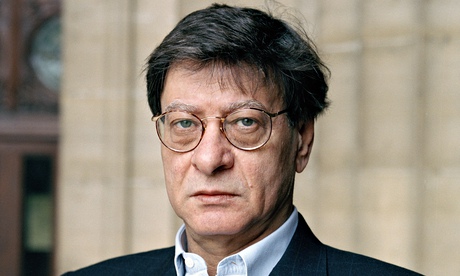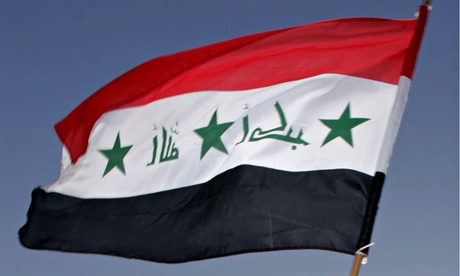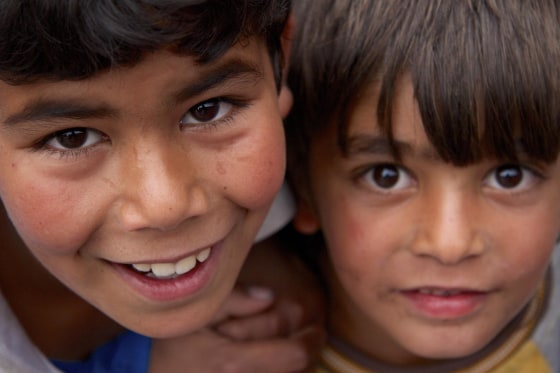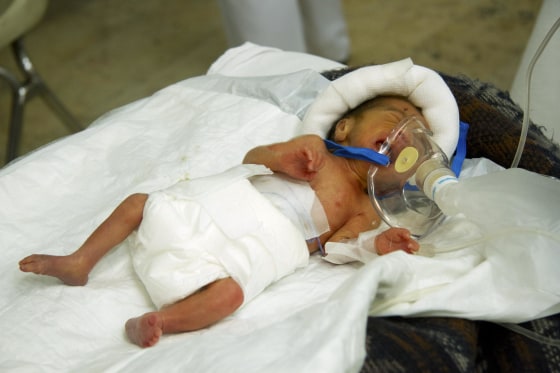By Rami G. Khouri
| The Daily Star |
 |  |
Perplexity and despair seem to be the two sentiments that most often define people’s attitudes to the mayhem in Syria.
The fighting by an expanding range of Syrians, backed by a regional and global web of supporters, has reached barbaric proportions in some cases, with civilians largely paying the price.
Refugee and displaced persons flows continue to grow and now account for some 6 million people. While efforts to find a diplomatic breakthrough continue and most interventions by outside forces are focused on providing humanitarian aid to the millions of Syrians in need, a wider web of Arab, Middle Eastern and global actors pump in money and guns to keep the Syrian war going.
Nobody knows what to do and more and more voices are calling for external military intervention to protect civilians or even to topple Bashar Assad’s regime. The impact of the war on neighboring countries is reaching unsustainable levels, especially Jordan and Lebanon. To their credit, the neighbors have kept their borders open to fleeing Syrians, even though these host countries are finding it more and more difficult to absorb any more refugees due to the pressure on their own social infrastructure, such as housing, water, education, and medical care. The host countries have received financial assistance either directly or through the United Nations and other international organizations, but it is well below what is needed.
Perhaps one reason why Arab host countries such as Lebanon, Jordan and Iraq keep their borders open is that these countries have all experienced the pain of conflicts that sent many of their own citizens fleeing for shelter in neighboring lands. So we should keep in mind that what is happening in Syria, terrible as it is, should not be seen as an aberration in modern Arab history, but rather represents perhaps the culminating chaos of that history. Syria once referred to itself as “the throbbing heart of Arabism.” That might be an appropriate description in retrospect, because the country’s destruction and implosion today very much mirror those deviant tendencies that have defined the configuration and behavior of so many Arab countries.
Some time in the 1970s, the majority of Arab states left behind their nationalist development aspirations and instead settled into a pattern of conduct that has culminated in the ghastly situation in Syria. The single most debilitating reality of modern Arab history has been the tendency of Arab countries to be ruled by single families that rely on vast security networks to maintain their rule. Single family rule is bad enough; military-security-police states are equally bad. Put them together and you get the core weakness of the modern Arab state system that has seen country after country suffer the scourge of internal war, mass suffering and significant refugee flows.
This legacy of family-military rule has included a series of horror stories such as Moammar Gadhafi’s Libya, Saddam Hussein’s Iraq, the Assads in Syria, Ali Abdulla Saleh in Yemen, Omar Hassan Bashir in Sudan, Zine al-Abedin ben Ali in Tunisia, and the latest example, Abdul-Aziz Bouteflika in Algeria. The Arab monarchies have more legitimacy among their people, but their societies suffer from the same underlying weaknesses and destructive tendencies that proliferate among all Arab countries.
Syria encapsulates all of these ailments and distortions that have shattered the modern Arab world, including the following main ones: rampant corruption, mismanagement of socio-economic development policies, military-enforced autocracy, lack of democratic rights for citizens, non-credible and inefficient judicial systems, serious environmental degradation, a mediocre public education system, a weak social safety net, unchecked rural-urban migration, ungoverned zones of chaos within many countries, fraying borders that allow unchecked flows of people and guns, the rise of religious and political fanaticism, and the pervasive use of violence by all parties, including national governments, oppositions, and regional and foreign powers.
The tragedy is not just that we are witnessing every one of these serious weaknesses in Syria, but rather that these destructive forces that have brought Syria to its knees accurately capture similar conditions to some extent across every Arab country, without exception. We look at Syria today and gasp in horror and sadness, because Syria is a mirror in which we see ourselves. It reflects what many Arab countries have already experienced, and what some others will experience in the years ahead if conditions remain the same.
Sad and depressing as this may sound, it is important to keep in mind that this situation is a consequence of human decisions, not of acts of nature or God that are beyond our capacity to repair. Decisions by Arab men and women brought us to this low point, and better decisions by Arab men and women can get us out of this pit.
The fighting by an expanding range of Syrians, backed by a regional and global web of supporters, has reached barbaric proportions in some cases, with civilians largely paying the price.
Refugee and displaced persons flows continue to grow and now account for some 6 million people. While efforts to find a diplomatic breakthrough continue and most interventions by outside forces are focused on providing humanitarian aid to the millions of Syrians in need, a wider web of Arab, Middle Eastern and global actors pump in money and guns to keep the Syrian war going.
Nobody knows what to do and more and more voices are calling for external military intervention to protect civilians or even to topple Bashar Assad’s regime. The impact of the war on neighboring countries is reaching unsustainable levels, especially Jordan and Lebanon. To their credit, the neighbors have kept their borders open to fleeing Syrians, even though these host countries are finding it more and more difficult to absorb any more refugees due to the pressure on their own social infrastructure, such as housing, water, education, and medical care. The host countries have received financial assistance either directly or through the United Nations and other international organizations, but it is well below what is needed.
Perhaps one reason why Arab host countries such as Lebanon, Jordan and Iraq keep their borders open is that these countries have all experienced the pain of conflicts that sent many of their own citizens fleeing for shelter in neighboring lands. So we should keep in mind that what is happening in Syria, terrible as it is, should not be seen as an aberration in modern Arab history, but rather represents perhaps the culminating chaos of that history. Syria once referred to itself as “the throbbing heart of Arabism.” That might be an appropriate description in retrospect, because the country’s destruction and implosion today very much mirror those deviant tendencies that have defined the configuration and behavior of so many Arab countries.
Some time in the 1970s, the majority of Arab states left behind their nationalist development aspirations and instead settled into a pattern of conduct that has culminated in the ghastly situation in Syria. The single most debilitating reality of modern Arab history has been the tendency of Arab countries to be ruled by single families that rely on vast security networks to maintain their rule. Single family rule is bad enough; military-security-police states are equally bad. Put them together and you get the core weakness of the modern Arab state system that has seen country after country suffer the scourge of internal war, mass suffering and significant refugee flows.
This legacy of family-military rule has included a series of horror stories such as Moammar Gadhafi’s Libya, Saddam Hussein’s Iraq, the Assads in Syria, Ali Abdulla Saleh in Yemen, Omar Hassan Bashir in Sudan, Zine al-Abedin ben Ali in Tunisia, and the latest example, Abdul-Aziz Bouteflika in Algeria. The Arab monarchies have more legitimacy among their people, but their societies suffer from the same underlying weaknesses and destructive tendencies that proliferate among all Arab countries.
Syria encapsulates all of these ailments and distortions that have shattered the modern Arab world, including the following main ones: rampant corruption, mismanagement of socio-economic development policies, military-enforced autocracy, lack of democratic rights for citizens, non-credible and inefficient judicial systems, serious environmental degradation, a mediocre public education system, a weak social safety net, unchecked rural-urban migration, ungoverned zones of chaos within many countries, fraying borders that allow unchecked flows of people and guns, the rise of religious and political fanaticism, and the pervasive use of violence by all parties, including national governments, oppositions, and regional and foreign powers.
The tragedy is not just that we are witnessing every one of these serious weaknesses in Syria, but rather that these destructive forces that have brought Syria to its knees accurately capture similar conditions to some extent across every Arab country, without exception. We look at Syria today and gasp in horror and sadness, because Syria is a mirror in which we see ourselves. It reflects what many Arab countries have already experienced, and what some others will experience in the years ahead if conditions remain the same.
Sad and depressing as this may sound, it is important to keep in mind that this situation is a consequence of human decisions, not of acts of nature or God that are beyond our capacity to repair. Decisions by Arab men and women brought us to this low point, and better decisions by Arab men and women can get us out of this pit.








 PAUL NASSAR / NBC NEWS
PAUL NASSAR / NBC NEWS PAUL NASSAR / NBC NEWS
PAUL NASSAR / NBC NEWS